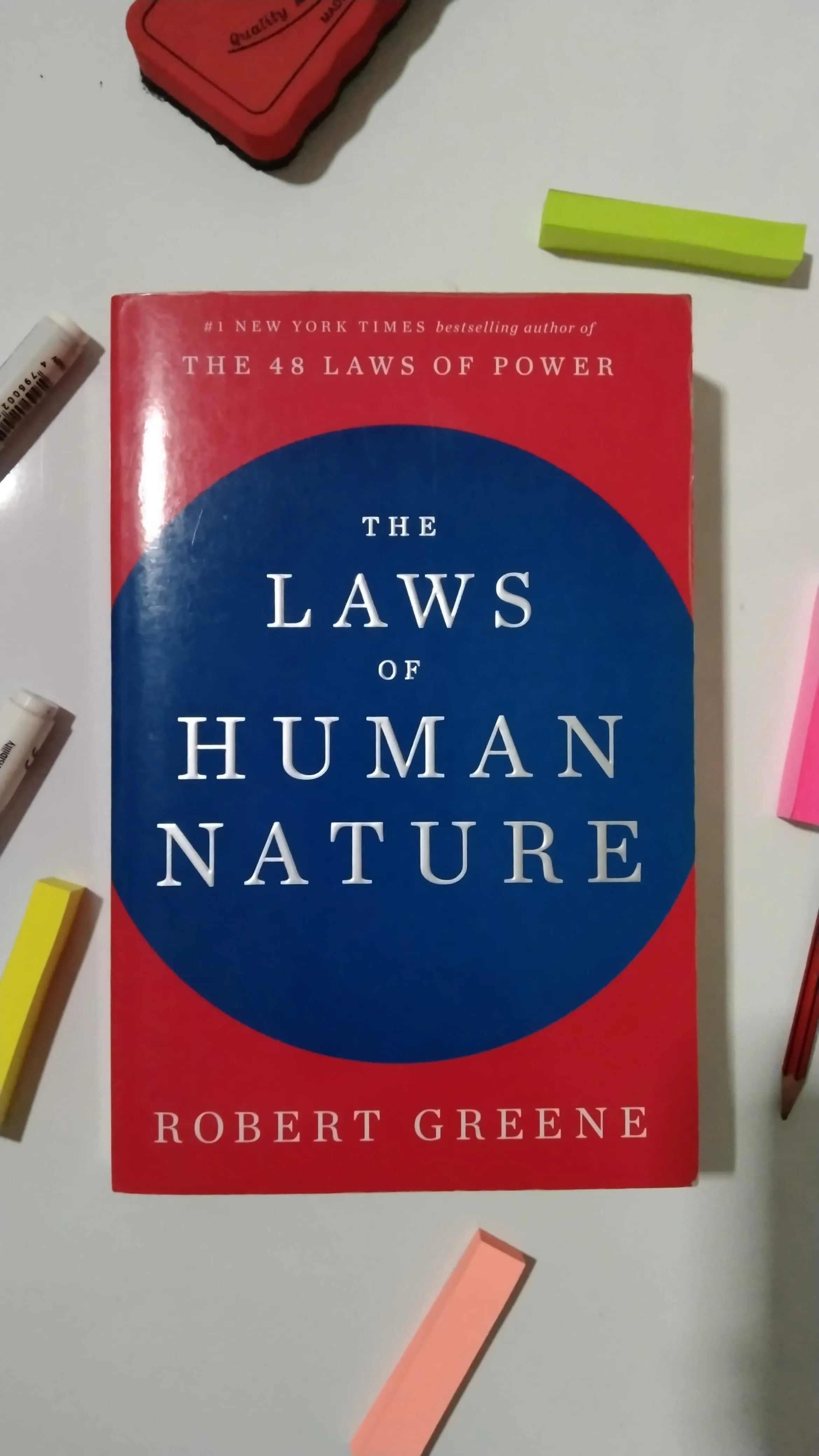The Laws of Human Nature
by Robert Greene
Psychological and emotional underpinnings of human behavior.



"The principle behind all human behavior is that we are motivated by our own self-interest, and that this interest is shaped by our emotions and our values. To understand human nature, we must look at the way these three elements interact."
- Robert Greene, The Laws of Human Nature
My Review:
The 33 Strategies of War by Robert Greene is a comprehensive guide to the strategies of war, both in battle and in everyday life. Drawing on the wisdom of great military leaders and thinkers throughout history, the book provides insights on how to be victorious in conflicts of all kinds.
One of the things that stood out to me most about this book was the author's ability to distill complex ideas and strategies into easily digestible principles. Greene does an excellent job of breaking down the strategies of war into 33 distinct categories, making it easy for readers to understand and apply them to their own lives.
The book covers a wide range of topics, from the importance of understanding one's own weaknesses and strengths, to the importance of knowing one's enemy. It also delves into the psychology of war, discussing how emotions and perceptions can influence the outcome of a conflict.
One of the most valuable lessons I learned from this book is the importance of being adaptable. In war, as in life, the ability to adapt to changing circumstances is crucial for success. The book emphasizes the need to be able to pivot and change tactics when necessary, and to be open to new ideas and perspectives.
Another important lesson is the need to understand and control one's own emotions. The book stresses the importance of being able to remain calm and collected, even in the face of adversity, and to avoid letting emotions cloud one's judgment.
The book also highlights the importance of being able to read people and understand their motivations. It emphasizes the need to be able to anticipate the actions of one's opponents, and to be able to manipulate them to one's advantage.
The importance of building and maintaining alliances is also discussed in the book. It stresses the importance of being able to identify potential allies, and to build and maintain relationships with them.
The book also provides insights on the importance of being able to take risks and make bold moves. It emphasizes the need to be able to take calculated risks, and to be willing to make bold moves when necessary.
In addition to these lessons, the book also provides valuable insights on the importance of being able to maintain the element of surprise, the importance of being able to use the power of perception to one's advantage, and the importance of being able to use the power of words to influence others.
Overall, The 33 Strategies of War is an incredibly valuable and thought-provoking book. It provides a wealth of insights and strategies that can be applied to both war and everyday life. Whether you are a business leader, a politician, or simply someone looking to improve your own life, this book is sure to provide valuable insights and strategies that you can use to achieve success. Some of the lessons I learned from this book are:
- The importance of being adaptable
- The need to understand and control one's own emotions
- The importance of being able to read people and understand their motivations
- The importance of building and maintaining alliances
- The importance of being able to take risks and make bold moves
- The importance of being able to maintain the element of surprise
- The importance of being able to use the power of perception to one's advantage
- The importance of being able to use the power of words to influence others
- The importance of understanding one's own weaknesses and strengths
- The importance of knowing one's enemy.